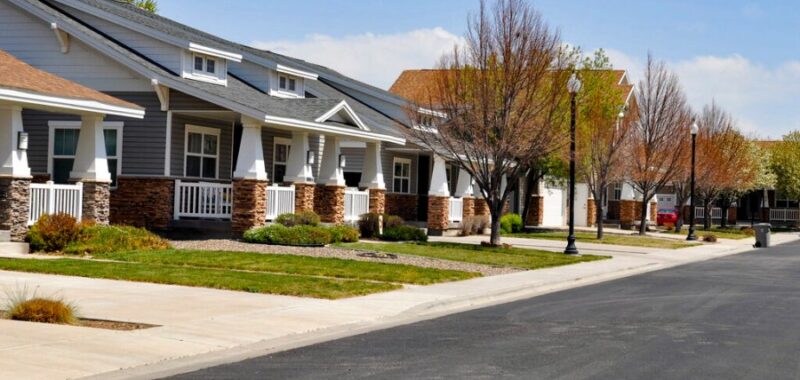
As the mayor of Utah’s “Military City,” I have the daily privilege of watching the men and women at Hill Air Force Base help defend our national security. Unfortunately, these same airmen’s security at home is under a different kind of attack right now: Personnel, from the newly enlisted to the officer level, can no longer afford to live in our town.
Even worse, from everything I am hearing from brave folks in their 20s, 30s, 40s and even 50s, this challenge is not unique to Clearfield City.
Late last year, personnel across the armed services told the Government Accountability Office that they “had to take on significant debt … Some of them had to run through all of their savings…or take on second jobs. Some of them [decided] not to bring their family members to their next deployment because they couldn’t afford family housing off base.”
The most recent Military Family Life Survey reported that off-base housing was the third-highest concern for active-duty service members. Adding another insult, veteran homelessness has risen 7 percent since 2023 after years of declines due to targeted assistance.
Having our military members who have bravely put their lives on the line to defend our nation live in sub-par housing, or struggle to afford food because all of their available income goes to housing, sends the wrong message to the military members and to the communities in which they live. It is a shame for our country.
But behind these economic and social storm clouds, there can be a better tomorrow, which is why America’s bipartisan mayors and business leaders are working together to help get common-sense legislation, policymaking and housing investment moving again — with the goal to make housing affordable again.
One specific piece of legislation I’ve been working on with Rep. Blake Moore (R-Utah) would offer a low-income housing tax credit to developers who build housing within 15 miles of large military installations like Hill Air Force Base. The bill would also exclude service members’ housing allowance from income calculations, meaning those members might qualify for low-income housing.
While Congress and the Pentagon have sought to relieve the affordability concerns through increases to the Basic Allowance for Housing and by updating the formula for the allowance to better match actual housing costs, these efforts still lag behind the market. Lawmakers have also proposed to make the allowance cover 100 percent of housing costs instead of the current 95 percent.
But there’s more we can do.
As co-chair of Mayors & CEOs for U.S. Housing Investment, I’m working with bipartisan mayors and business leaders on targeted, concrete proposals to work toward four goals. First, we hope to support and strengthen existing federal programs that are proven effective, including making HUD funding more accessible to families and preserving municipal bonds’ tax-exempt status, providing towns like Clearfield City with reliable capital necessary to finance affordable housing development.
Second, we mean to treat housing as infrastructure by expanding tools and financing to stimulate private market production of affordable housing for working and low-income families. As part of this, we oppose widespread tariffs on building materials like Canadian lumber, which the National Association of Home Builders says could add up to $10,000 to the cost of building a single-family home.
Third, we aim to cut red tape by allowing more local flexibility in existing federal housing programs, like streamlining environmental review under the National Environmental Policy Act to expedite affordable housing development.
Finally, we wish to build local capacity by strengthening local, skilled, organizations that ensure the effective and efficient deployment of available federal resources to help local governments reach their most vulnerable citizens.
In towns like Clearfield City, we’re also pushing into innovative affordable housing models and advanced building techniques like accessory dwelling units, panelized modular structures, and regional housing solutions in order to get all our neighbors under a roof they can afford.
I don’t want to watch another F-35A Lightning II launch from Hill AFB while knowing that brave pilot might be worried about his or her rent payment. An airman who is worried about where they’re going to house their family is an airman preoccupied by something other than their mission. That’s when a housing issue also becomes a national security issue.
To make housing affordable again for our warfighters, our teachers, our firefighters and all our neighbors, Congress and the administration need to join Moore and others and act now. This crisis is being fought not on the battle front in some distant land, but right in our own back yards.
Mark Shepherd is mayor of Clearfield City, Utah.

